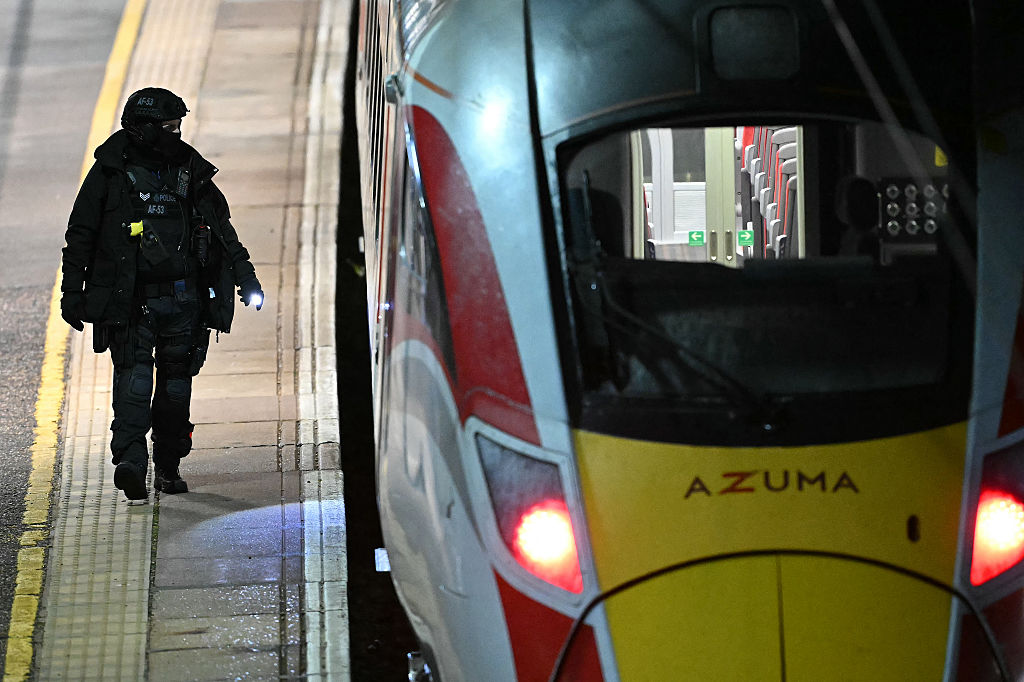Europe has seen this nightmare before. On 21 August 2015, a gunman armed with an AK-47-style assault rifle, a pistol and a knife opened fire on a Thalys train travelling from Amsterdam to Paris, wounding three passengers before being overpowered near Arras. The attacker, Ayoub El Khazzani, a 25-year-old Moroccan who had trained with Islamist militants in Syria, boarded the train intending to commit a massacre in the name of jihad. He was stopped only because three off-duty American servicemen happened to be on board and tackled him as he tried to reload. Without them, the carriage would have become a slaughterhouse. El Khazzani was sentenced to life by a French court in 2020. The lesson then, as now, is that a confined train is a soft target and, once the doors close, there is nowhere to run.
The lesson then, as now, is that a confined train is a soft target and, once the doors close, there is nowhere to run
A similar horror has replayed itself in Britain. Passengers on the 18.25 LNER service from Doncaster to King’s Cross were trapped in their carriage during a knife attack. Armed police stormed the train when it was stopped at Huntingdon. Eleven people were treated in hospital, two have life-threatening injuries. British Transport Police have said at this stage there is ‘nothing to suggest’ this is a terrorist incident. But the fact remains: Britain’s trains are as exposed as Europe’s were a decade ago.
After the Thalys attack, France and Belgium promised tighter rail security. The result was patchwork. Eurostar adopted airport-style screening, X-rays and metal detectors, but most domestic lines stayed unchanged. Ministers warned that universal scanning would cripple timetables. The rail operators’ lobby argued it was ‘impractical’ to install metal detectors in every station. Governments agreed. A few extra patrols were added, some CCTV was upgraded, and Europe congratulated itself that it had avoided panic.
The idea that airport-level security could not be replicated for rail became an article of faith. The industry said the numbers were too large, the stations too open, the cost too high. Instead, Europe relied on intelligence-sharing, visible patrols and better coordination between national police. It was a convenient compromise that left millions of passengers frankly no safer.
Other countries take a different view. In Russia, every mainline station is equipped with metal detectors and X-rays. The Moscow metro screens passengers at every entrance before they enter the platform area. When security is run efficiently, it works and doesn’t much slow things down. The logic is simple, trains are as vulnerable as planes, and pretending otherwise is self-deception.
Israel offers a third way. At mainline stations passengers board without a single archway scanner. Instead, plain-clothes spotters roam the concourse, trained to spot suspicious behaviour. Bags are X-rayed only if there are red flags.
In Britain, passengers are unprotected. Airports come first, trains last. At St Pancras, Eurostar passengers pass through scanners and passport control as if boarding a plane. But right next door at King’s Cross, thousands pour onto high-speed services without so much as a bag check. The discrepancy is indefensible.
The political response will no doubt be familiar. The Home Office will promise a review. British Transport Police will announce ‘enhanced vigilance’. Ministers will talk about balance and proportionality. But those words have become code simply for not taking any meaningful action. Once the doors close and the train’s moving, it’s too late. Real deterrence means checking before passengers board, not after blood has been spilled.
The objection is cost. Airport-style security takes time, staff and equipment. It slows passengers down. But at the same time these attacks show that minutes count. In the time it takes police to reach a moving train, dozens can die. A metal detector at the platform entrance prevents that.
The open-access model may work for commuter lines, but not for high-speed or long-distance trains where passengers are locked in for hours. There is no reason why a London-Edinburgh service should have weaker checks than a flight on the same route. The technology exists. What is missing is political will.
Britain does not need scanners in every rural halt. It does need them at major hubs, on inter-city lines, and for any service running at speed with doors locked between stations. Random screening and plainclothes officers can supplement that. Security theatre is pointless, targeted deterrence is not. The public would surely accept minor inconvenience if it meant real protection.
The Huntingdon attack will fade from the headlines. So did the Thalys attack. Europe told itself it had learned its lesson, but very little changed. The next attacker will find it just as easy to board. The carriages will still be confined. The doors will still close. And once they do, there will still be nowhere to run.







